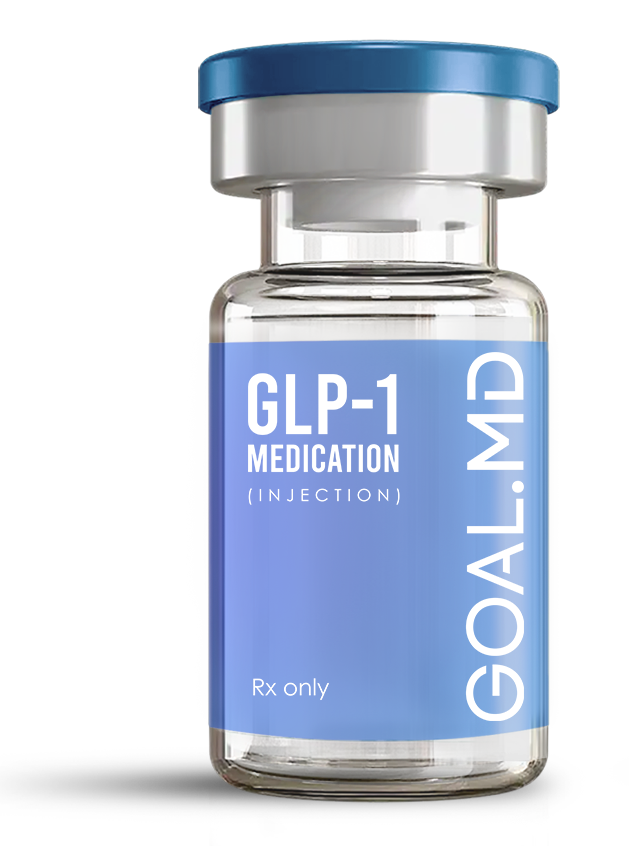
GOAL.MD Health & Wellness Blog
Evidence-based insights, medical weight loss information, and practical tips from our physicians and healthcare experts.

Better Sleep on GLP-1s? Here’s What We Know So Far
Sleep is one of the most overlooked pillars of health, yet it’s deeply connected to metabolism, mood, and weight management. If you’re on a GLP-1 medication like semaglutide or tirzepatide, you might have noticed something surprising — your sleep patterns shifting. But is this coincidence, or could GLP-1s genuinely be helping you sleep better?
At GOAL.MD, we’ve seen growing interest from patients curious about whether these medications can influence rest. While research is still in its early stages, emerging science and patient experiences suggest there might be more to the story than we think.
The Science of Sleep and GLP-1s
GLP-1 receptor agonists were designed to help regulate blood sugar, appetite, and digestion — not necessarily sleep. However, these areas are closely linked to circadian rhythm and energy balance.
Blood Sugar Stability: Fluctuating blood sugar can lead to nighttime awakenings or difficulty staying asleep. By keeping glucose levels steadier, GLP-1s may reduce these interruptions.
Appetite Regulation: Late-night cravings and snacking can disrupt deep sleep cycles. GLP-1s help curb hunger, allowing the body to rest rather than digest.
Gut-Brain Signaling: GLP-1 receptors are present in the brain areas that influence both appetite and sleep regulation, meaning indirect benefits are possible.
Real-World Patient Reports
Some patients report:
Falling asleep faster
Waking up less during the night
Feeling more refreshed in the morning
However, others experience the opposite, especially during the first weeks on medication — insomnia, vivid dreams, or restlessness. These early effects often resolve as the body adjusts.
Factors That Influence Your Sleep on GLP-1s
Your experience may depend on:
Timing of Your Dose: Morning dosing may help avoid any nausea-related sleep disturbances.
Dietary Choices: Heavy or greasy evening meals can trigger indigestion, impacting rest.
Hydration Habits: Drinking large amounts right before bed can disrupt sleep with more bathroom trips.
Tips to Maximize Sleep Quality on GLP-1s
Keep a consistent sleep schedule — your body thrives on routine.
Avoid caffeine after mid-afternoon.
Eat your last meal at least 2–3 hours before bedtime.
Keep your room dark, cool, and quiet.
When to Talk to Your Provider
If sleep issues persist beyond the adjustment period, speak with your healthcare provider. They may recommend adjusting your dosing schedule or addressing other sleep-disrupting factors.
The Bottom Line
While GLP-1s aren’t prescribed as sleep aids, the metabolic stability they promote may have surprising benefits for your rest. At GOAL.MD, we believe in addressing health holistically — and that includes optimizing both your weight loss and your recovery time each night.
Remember: Better sleep means better weight loss results. Your body heals, restores, and burns fat more efficiently when you get quality rest.
Why GOAL.MD?
✅ Sourced from audited 503a US compounding pharmacies.
✅ Custom dosages adjusted to your needs.
✅ Free consultation + 24/7 support.

How It Works
1. Quiz
90 seconds. No commitment.
2. Consult
Video chat with your GOAL.MD doctor.
3. Deliver
Meds at your door tomorrow.
Transform Your Life with Physician-Directed Care
Join thousands who've found success with physician-directed care. Take our 3-minute quiz to see if medical weight loss is right for you.








